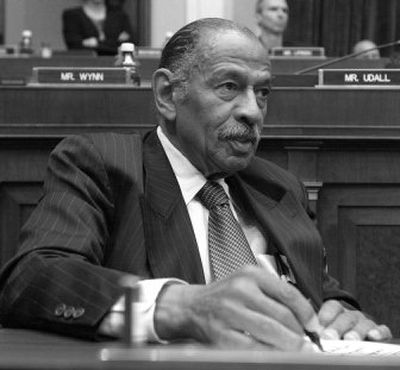Panel OKs subpoenas for top officials

WASHINGTON – A House panel Wednesday authorized subpoenas for top White House and Justice Department aides, including White House counselor Karl Rove, setting up a constitutional clash with the Bush administration over the U.S. attorneys investigation.
With the Senate Judiciary Committee poised to authorize a similar batch of subpoenas today, the House Judiciary subcommittee on commercial and administrative law also issued a broad-based subpoena for documents and e-mails related to the U.S. attorney firings from Rove, Attorney General Alberto Gonzales, White House chief of staff Joshua Bolten, former White House counsel Harriet Miers and a trio of other aides.
The subpoenas served as an act of defiance toward President Bush, coming less than 24 hours after he warned Democrats against engaging in a “partisan witch hunt” and vowed to embark on a legal battle to shield his staff from public testimony under oath.
“We must protect the interest of the Congress and the American people by maintaining the option to move forward with our investigation with or without continued cooperation from the administration,” said House Judiciary Committee Chairman John Conyers, D-Mich.
But White House officials held firm to the President Bush’s offer to turn over thousands of pages of correspondence and to make the aides available only for private interviews, not under oath, with limited questions and no transcriptions. White House spokesman Tony Snow called that “extraordinarily generous.”
The choice facing Congress is plain, he said: “You want to get at the truth? Or do you want to create a political spectacle?”
If the White House refuses to comply, the judiciary committees would meet in the coming weeks to decide whether to issue contempt of Congress citations. If they do, the full Senate and House would have to follow suit.
That would set in motion the extraordinary spectacle of Congress enlisting the U.S. attorney for the District of Columbia to empanel a grand jury to seek the indictment of administration officials over their refusal to testify on the firing of his colleagues.
“A U.S. attorney would feel a great deal of pressure to say, ‘The law is the law, and I will follow the law,’ ” said Charles Tiefer, a former House counsel, now at the University of Baltimore Law School. “But in this case, the U.S. attorney also would be expected to follow the instructions of his president.”
According to the Congressional Research Service, 10 Cabinet level or senior executive officials have been cited for contempt of Congress since 1975 for failure to produce subpoenaed documents by either a subcommittee or a full committee. In each instance, the White House substantially or fully complied before criminal proceedings began.
Only once has a congressional subpoena showdown reached the level of a chamber of Congress issuing a contempt citation, Tiefer said. That came during the scandal surrounding Ronald Reagan’s Environmental Protection Agency director Anne Burford, and even in that case, then-U.S. Attorney Stanley Harris dragged his feet on the convening of a grand jury until the House and White House resolved the matter.
Indeed, regardless of Bush’s insistence that his current offer would grant Congress “unprecedented” access to his staff, legal observers expect Congress and the White House to reach a deal more to the Democrats’ liking. House Oversight and Government Reform Committee Chairman Henry Waxman, D-Calif., cited nine different instances during the Clinton administration when White House counsels testified before congressional committees or were deposed under oath. In three other instances, White House chiefs of staff appeared before committees to testify on Clinton-era scandals or were deposed under oath.